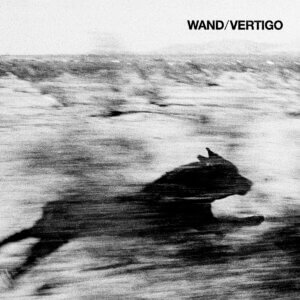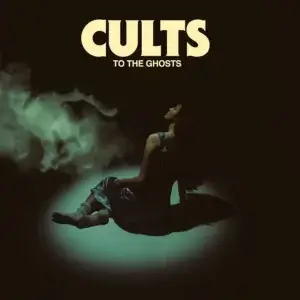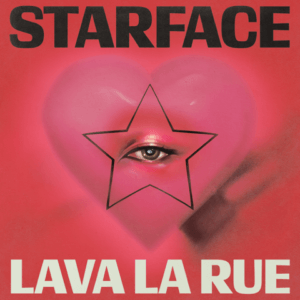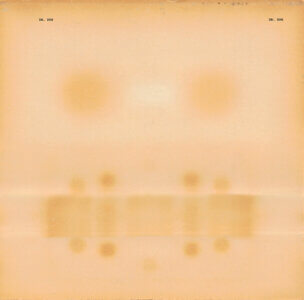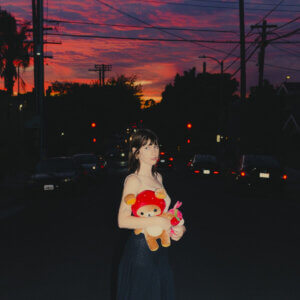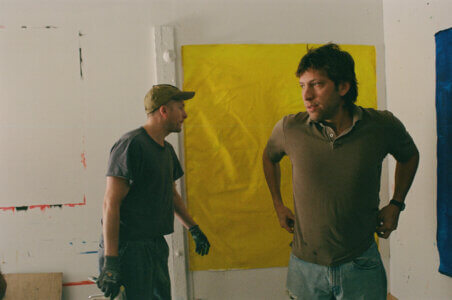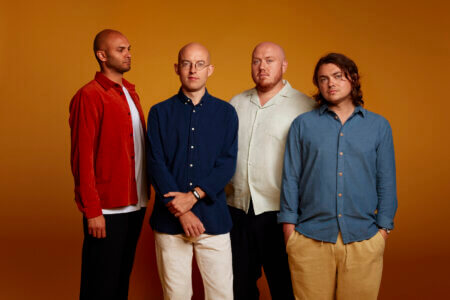Charles Spearin’s Musical Self-Discovery
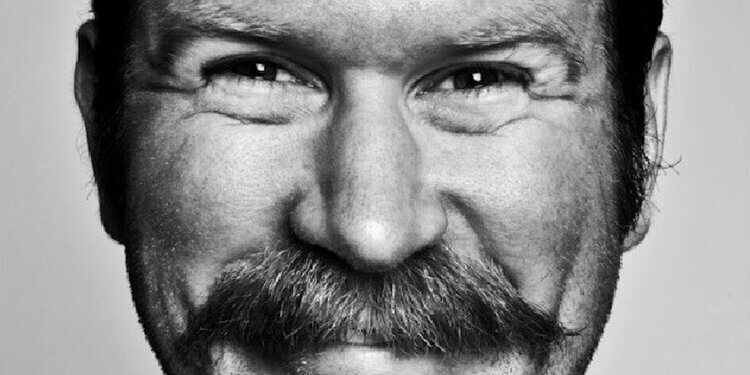
For the last twenty-five years, multi-instrumentalist and composer Charles Spearin has been a key member of groups defined by collaboration. It’s an ordinary occurrence to see Do Make Say Think or Broken Social Scene perform with at least ten people onstage on any given night. For the first time since the release of his Juno Award winning album The Happiness Project, Spearin has stepped into the spotlight alone. On August 13th, Spearin released his new solo record, My City of Starlings, a gorgeous collection of songs that ranges from deeply meditative to uplifting self-affirmation. The album was largely recorded during the pandemic after Spearin participated in a song-a-day writing club that helped him learn to create without overthinking.
Spearin played almost all of the parts on the album, which was recorded in his backyard studio. With distressing headlines in abundance these days, My City of Starlings provides a dose of glimmering hope that you can get lost in with repeated listens. We reached Spearin at Artscape in Toronto, where he’s been working with a group of Syrian refugees and local musicians on a new project that he says is “probably years away.”
Northern Transmissions: I read that My City of Starlings was the culmination of a song-a-day recording club of friends from around the world. How did that group get started?
Charles Spearin: Most of the songs are from that song-a-day club, but a few of them, like “Rutting Season,” have been kicking around since 2017. The song-a-day club was kind of a perfect incentive to get over all my internal hurdles and just write. It started with an invite from Phil Weinrobe (Big Thief, Nick Murphy, Dave Harrington) an engineer/producer from New York who I met a couple years ago. He put together a collection of interesting people from around the world and we would have to write, record, and hand in one song every day during the pandemic. If you didn’t hand in a song you were kicked out of the club, so there was a pressure to create without putting too much critical thought into each song. The definition of a song was so open to interpretation that there were times where I would just hand in the dinging of a clock. Other times I would write very elaborate songs and spend the entire day working on them. The club was a really great incentive and motivator to get my wheels turning, and so I ended up with a lot of song ideas that I was able to work on throughout the pandemic.
NT: Do you think My City of Starlings would have sounded different had you recorded it before joining this song writing club? Like were you inspired by a new technique or form that you heard when exchanging songs with other artists?
CS: I think so. The people involved were so imaginative and creative, so I felt I really had to get my stick on the ice and have something to offer as well. I don’t know if a competitive spirit is the right term for it, but I felt pressure to be my best. There was a spirit of, “first thought is best thought,” and, “everything is yes,” which helped me find the confidence to get over myself. Normally I might spend more time deliberating and questioning my choices. In this group I didn’t have that opportunity, which was kind of a relief.
NT: You recently thanked some of the musicians who played on the record on Instagram. Were you all in the studio at any given time during the recording of the album, or was everything assembled piece-by-piece?
CS: Piece-by-piece; there were no more than two people in the room at a time. I would record my own sketch of a song and get it as close to something that I liked before sending it to friends who I thought could make it sound better. Karen Ng was involved in most of the songs and became a real confidante. Because of COVID we were collaborating mainly by sending files back-and-forth by email. I think the only people I had in the studio were Anne Bourne, a cellist I’ve been playing with for a while, and Mike Gennaro, who would come into the studio to help me get the drum sound I was looking for.
NT: There are so many great songs on the album, my favourite tracks are “Death by Onomatopoeia,” “Diaspora,” and “Rutting Season.” As you were crafting these songs, did you know right away that you were making a solo album, or did you see any of these as potential songs for your other projects like Broken Social Scene or Do Make Say Think? I can especially imagine “Rutting Season” as a full Broken Social Scene song.
CS: It’s interesting that you bring up “Rutting Season,” because that was one that came together after a conversation with Brendan Canning from Broken Social Scene. He was saying that we don’t have enough shuffle songs, so I went home and tried to write one and ended up writing all the parts for “Rutting Season.” With Broken Social Scene you don’t just write everyone’s part, it’s not the kind of band where you come in and say, “this is the song, and here’s what you’re going to play.” I ended up adding too much to it by myself for it to be a Broken Social Scene song, but I kept it on my hard drive and sent it to a few people. The writing process is very collaborative with both Do Make Say Think and Broken Social Scene, so this was kind of a fun experiment to allow myself to come up with all the parts and weave them together alone.
NT: Your last solo project, The Happiness Project, came out in 2009. What do you think led to such a large gap between solo records?
CS: In a way I feel that this is my first solo record because The Happiness Project was more of an experiment in studying the melody of speaking voices. I’ve always had some apprehension about releasing an album under my name because I struggle with the ego of it. For me it’s way easier to work with a group, hide behind a name, and put all ideas into that project rather than feel the music defines my personal identity. There’s some strange ego aspect about labeling music with your own name that gets me all twisted up and I start to second guess everything.
NT: Do you still feel that now after releasing this album under your own name?
CS: In a sense the song-a-day club got me over that feeling because all these songs really are me. It’s my ideas and thoughts. These songs weren’t overworked, so I think the album is a good representation of the music that I make when I’m left to my own devices. I see it more like learning about myself. I don’t think I would have ever made a solo album if I didn’t have the song-a-day experience.
NT: The music videos for “Unsolicited Advice” and “Portrait of the Artist” are some of the best ones I’ve seen in a long time. How did you get connected with video director Jared Sales?
CS: I mixed a song for Laura Barrett called “Museum Tour Guide,” and the video for it was done by her friend Jared Sales. I was blown away by it and reached out to him to create a video for this album and he came back with an incredible concept. It’s mind-blowing; I just told him he can create anything he wants to do. We’ve really hit it off and did the two videos together, but I’d love to do more with him in the future because I love his approach.
NT: I also really like the single you released “Unsolicited Advice.” It sounds a lot like a Mettā loving kindness meditation mantra if you’re familiar with it.
CS: Oh yeah, I’m done Maitrī loving kindness meditation. I was raised Buddhist and spent a lot of time meditating in my life. I was briefly a Buddhist monk. That song is a reaction to my kids becoming teenagers and this shift from childhood to teenagehood that can be challenging and dramatic. It’s really about just being nice to yourself. I released the song for Mental Health Awareness Month, and I think I’m going to keep reupping it every time there’s a campaign like Suicide Prevention Day or any related awareness event.
NT: Do you have any plans to tour the record?
CS: I would love to, but right now touring isn’t really an option for anyone. Broken Social Scene has a show booked at Massey Hall in December, but that’s the only thing I have these days on my calendar. I would love to put a band together, rehearse these songs, and tour them, but it’s just not the time right now to explore it. One day it may happen. I’ve definitely fantasized about what those shows can be, but for now I can’t plan anything so it’s all just sort of floating around in my head.
Order My City of Starlings by Charles Spearin HERE
Latest Reviews
Tracks
Advertisement
Looking for something new to listen to?
Sign up to our all-new newsletter for top-notch reviews, news, videos and playlists.
